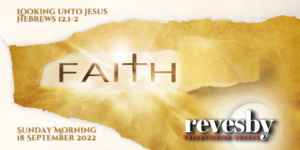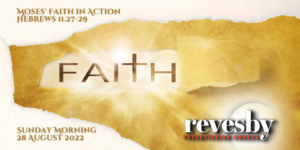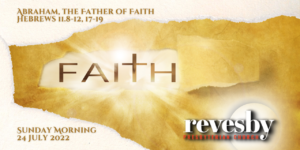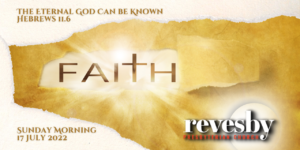Looking Unto Jesus (Hebrews 12:1-2)
Christ is both our example and our substitute – read 1 Peter 2:21-24. Hebrews 12:1 is ‘the epilogue to the former chapter’ (Calvin).
- Sin is the great hindrance in the race of faith.
- 12:1. The witnesses could be spectators to the race, but more likely they are those who










